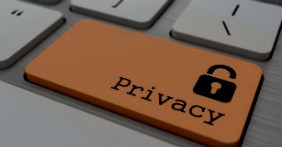With internet privacy becoming a hot topic in 2018 more people than ever are concerned about protecting themselves online.ere are ten tips to help you keep yourself safe on the internet.
1) Don’t forget to log out
Logging out of your accounts such as social media and online banking after using them is a quick and easy way to prevent would-be intruders gaining unwanted access to your data. It is easy to think that merely closing the window you are logged into is enough to protect you, however, you may still be signed into the account on your device leaving you open to sites such as Facebook tracking your browsing in the background. This tip is especially important if you are using a public computer, for obvious reasons.
2) Don’t Access Private Accounts on Public Networks
It is best not to log into your social media or online banking accounts at all when connected to public networks. Many of these networks can track your data and send it to third parties and some can even intercept your connection and steal your data or inject malware onto your device.
3) Use a VPN
If you must access your social media or online banking on a public network you should do so through a VPN. Using a VPN will redirect your data through an encrypted tunnel making it far more difficult for others to intercept it. VPNs can also be used to access content which is blocked in certain countries as third parties will only see the IP address of the network you are connected to rather than your real IP. It is a good idea to use a VPN for all your internet usage whether you are connected to a public network or not.
4) Beware of companies asking for your details
Often companies will ask for personal details such as your email address to access content or enter a contest. However, many times this information is being collected for marketing purposes or even to sell to third parties. If you must sign up with an email address, use a throwaway email to minimise the risk.
5) Take Care When Sharing Your Location
Whilst it can be fun to check in on social media sites to record where you have been this can also lead to issues. Sharing your location makes it incredibly easy for third parties to track you and can even lead to physical harm. If in doubt it is safer to avoid sharing your exact location online.
6) Don’t Open Suspect Emails
Even if you take care to give out your email address sparingly you will still receive spam or phishing emails from time to time. Suspect emails that you are not expecting to receive should be deleted immediately without opening the email or clicking any links inside. In addition to this, never reply to emails of this kind asking to be removed from the mailing list. This only serves to notify the sender that the address is active and may invite more emails in the future.
7) Use a Strong Password
Nowadays using simple, easy to guess passwords such as ‘12345’ and ‘password’ can leave you open to an attack. A good password will be easy to remember but difficult to guess and contain a variety of upper and lower-case letters, numbers and special characters.
Passwords should also not contain any personal information which may make them easier to guess. To provide additional security, password managers can be used to create and store long random passwords for your accounts and two-factor authentication should be used where possible.
8) Be Careful of Cookies
While cookies may sound nice they allow companies to track your movement and behaviour online. This allows them to target advertising based on what you look at online. To avoid this, browser add-ons or private web browsers can be used.
9) Browse Anonymously
Using tools to allow you to browse the web anonymously can help to protect you online. Tools such as web browser Tor and search engine DuckDuckGo can be used to help keep your browsing experience private. In addition, opening shortened links whilst browsing should be avoided where possible.
10) Think About What You Share Online
The final thing to remember is that you are the one who controls what information you post online. Do not give our your real email address to anyone you do not trust and avoid sharing personal data on insecure machines or networks. Also, be aware that anything you share online is, in effect, permanent and can be shared or used without your knowledge.

